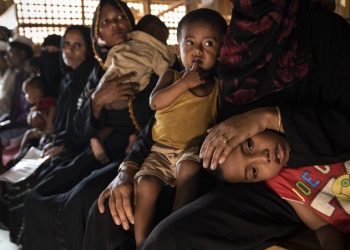Human Lives Human Rights: On Sept. 21, 1976 Orlando Letelier, a Chilean economist, politician and diplomat and leading critic of military dictatorship of General Augusto Pinochet, was assassinated in a car bombing on Washington’s Embassy Row, one of the most blatant acts of state-sponsored terrorism in the United States.
Letelier’s assassination faced international condemnation, it affected U.S.-Chilean ties and was considered as one of the most egregious acts of violence committed during the repressive rule of Pinochet, who ruled Chile for 17 years.
Those responsible for the bombing went unpunished for years. Finally, Orlando Letelier’s sister, Fabiola Letelier came up as one of her country’s leading human rights lawyers.
Ms. Letelier, died Nov. 18 in the Chilean capital, Santiago. She was 92. Her granddaughter, Javiera Erazo, confirmed Letelier’s death and said that she died of the complications from a stroke.
Ms. Letelier grew up in a liberal environment, where she was encouraged to pursue professional opportunities beyond those available to most women of her era. She graduated from law school, established herself as a lawyer and became active in the defense of human rights after Pinochet came into power.
Responding on the loss of her brother, she once said to AFP “I became a victim, too.”
“If we are to restore a minimum of prestige to Chile’s courts, among the thousands of cases, this is the one that must be clarified Ms. Letelier told the Boston Globe in 1991.
“Its impact transcends far beyond our family. If there is no justice in this case, there will be no justice for Chile.”
“For all these years, I carry such pain in my heart, but I continue the struggle for justice,” she told the Times Union of Albany, N.Y., in 2003. “I won’t give up because they killed my brother and so many thousands more like him were killed or tortured. … We only want the truth.”
Fabiola Alicia Letelier del Solar was born on July 17, 1929, in Temuco, in central Chile. During the 1960s she worked for the Organization of American States in Washington, where her granddaughter said she was deeply influenced by the ideals of the civil rights movement.
In Chile, Ms. Letelier worked with groups including the Vicariate of Solidarity, a Catholic organization that tracked human rights abuses under the Pinochet regime.
Charles Horman, an American journalist and filmmaker whose kidnapping and murder in the wake of the 1973 coup inspired the film “Missing” (1982), was one of the cases she took up.
Ms. Leteiler is survived by two sons, Fernando Leiva and Rodrigo Leiva; two daughters, Fabiola Leiva and Manuela Leiva; five grandchildren; and two great-grandchildren.
It is interesting to note that her brother had made a pendent for her in prison, a black rock carved on one side with an image of the Virgin Mary and on the back with his prison number, she wore it for years after her brother’s death.


















